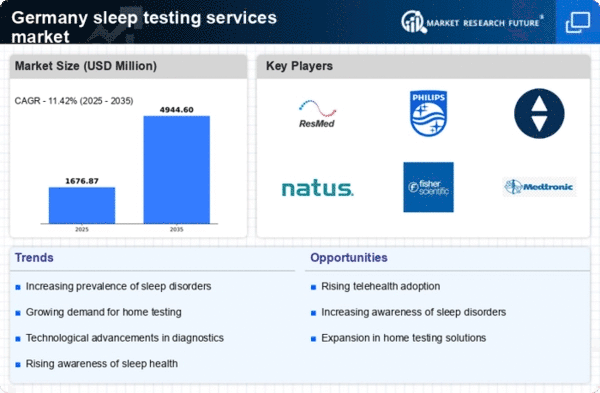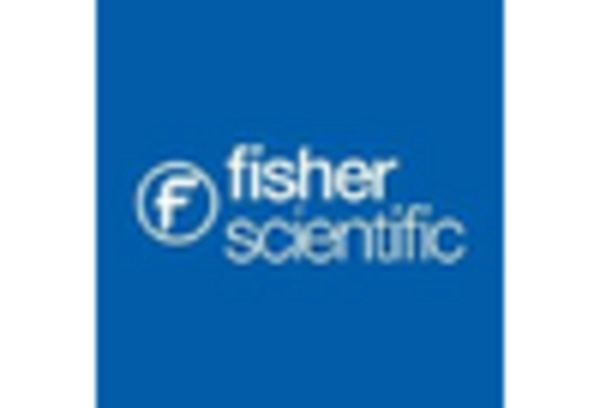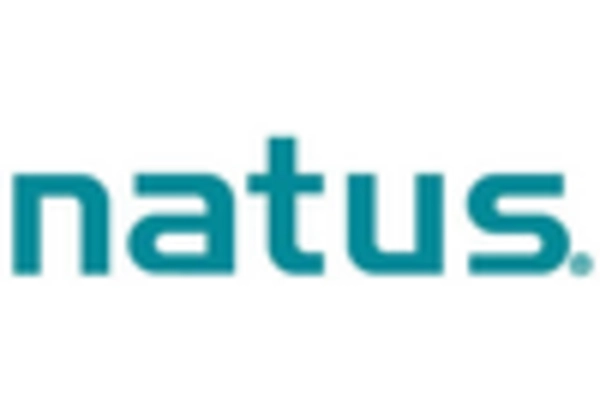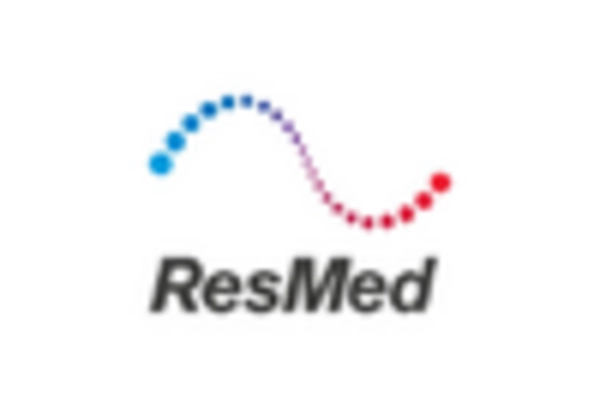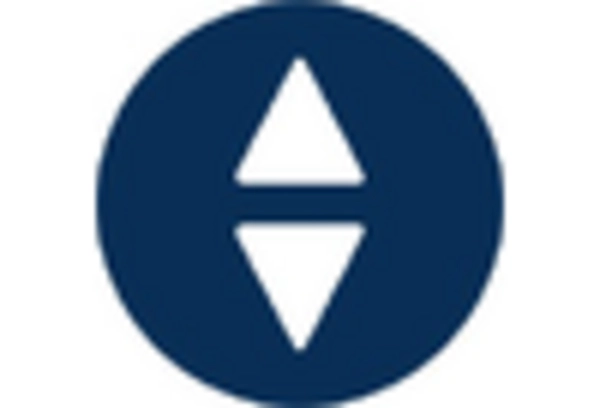Supportive Regulatory Framework
A supportive regulatory framework is fostering growth in the sleep testing-services market in Germany. Government initiatives aimed at improving healthcare access and quality are encouraging the development of sleep testing services. Policies that promote preventive healthcare and early diagnosis of sleep disorders are likely to enhance the market landscape. For instance, reimbursement policies for sleep studies are becoming more favorable, making these services more accessible to patients. Additionally, regulatory bodies are establishing guidelines that ensure the quality and safety of sleep testing procedures. This supportive environment is expected to stimulate investment in the sleep testing-services market, leading to the introduction of new services and technologies that cater to the needs of the population.
Growing Awareness of Sleep Disorders
The increasing awareness of sleep disorders among the German population is a pivotal driver for the sleep testing-services market. As more individuals recognize the impact of sleep-related issues on overall health, the demand for diagnostic services has surged. Reports indicate that approximately 30% of adults in Germany experience sleep disturbances, prompting a greater need for professional evaluation. This heightened awareness is likely to lead to an increase in consultations with sleep specialists and the utilization of sleep testing services. Furthermore, educational campaigns by health organizations are contributing to this trend, emphasizing the importance of sleep health. Consequently, the sleep testing-services market is expected to expand as more individuals seek to understand and address their sleep issues, thereby enhancing their quality of life.
Integration of Advanced Diagnostic Technologies
The integration of advanced diagnostic technologies is transforming the sleep testing-services market in Germany. Innovations such as portable sleep monitors and advanced polysomnography equipment are enhancing the accuracy and efficiency of sleep studies. These technologies allow for more comprehensive data collection, enabling healthcare providers to diagnose sleep disorders with greater precision. The market for sleep testing services is projected to grow as these technologies become more accessible and affordable. For instance, the introduction of home sleep testing devices has made it easier for patients to undergo evaluations in the comfort of their homes, potentially increasing participation rates. As a result, the sleep testing-services market is likely to benefit from these advancements, leading to improved patient outcomes and satisfaction.
Rising Incidence of Lifestyle-Related Sleep Issues
The rising incidence of lifestyle-related sleep issues is significantly influencing the sleep testing-services market. Factors such as increased stress levels, sedentary lifestyles, and poor dietary habits are contributing to a surge in sleep disorders among the German population. Studies suggest that nearly 40% of adults report experiencing insomnia or other sleep-related problems, which is prompting a greater demand for sleep testing services. This trend is particularly evident in urban areas where fast-paced lifestyles are prevalent. As individuals seek solutions to improve their sleep quality, the market for sleep testing services is expected to expand. Healthcare providers are likely to respond by offering more comprehensive testing options and personalized treatment plans, further driving growth in the sleep testing-services market.
Increased Collaboration Between Healthcare Providers
Increased collaboration between healthcare providers is emerging as a key driver for the sleep testing-services market. Partnerships among hospitals, sleep clinics, and primary care physicians are facilitating a more integrated approach to diagnosing and treating sleep disorders. This collaborative model allows for better patient referrals and streamlined access to sleep testing services. As healthcare providers work together, they can share resources and expertise, ultimately enhancing the quality of care for patients. The sleep testing-services market is likely to benefit from this trend, as more patients are directed to appropriate testing and treatment options. Furthermore, interdisciplinary approaches may lead to the development of comprehensive care pathways that address the multifaceted nature of sleep disorders.


